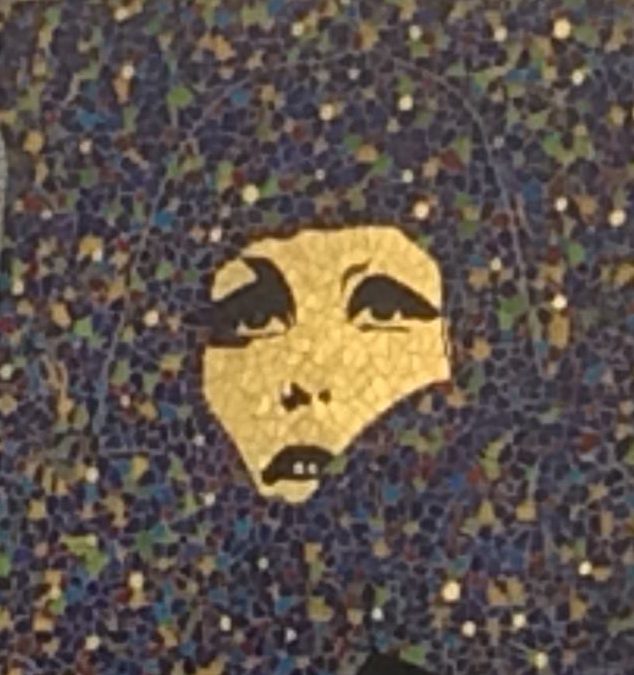I have always found magic in declining spaces. Abandoned lots in the middle of a city, wedged between buildings and overrun with weeds. Alleyways of every description. The Main Street of a small town that has languished since the freeway was built, or the mall, or the subdivision.
These are places that have fallen out of time. They were left behind as the world moved on. They have scraped out a living in the margins, blissfully invisible. Nature takes over again; childhood beckons from shadowy recesses; the invisible world can breathe.
I went to Venice with my family last summer. We bumped over the cobblestones with our roller bags in the near-dawn, over silent canals, lights reflected in their depths like fairy orbs. We settled into the quietude of the Jewish quarter, far from the crowds of St. Mark’s Square, and set about to forget the greater world, ensconced as we were in corridors of crumbling stone, opening suddenly on wide, empty courtyards graced only by one or two aged trees. A magnificent ruin, open only to the sky.
I described Venice to my friends like this: she wears her decrepitude like a very old, elegant woman who is comfortable in her own skin. The upward-creeping stain, the mottled veneer, flaking from lintel and corbel alike — these are her robes, deep, moldering rose, mustard and mossy green. She turns inward, away from the surrounding estuaries, from the marauding hordes of old who could not invade by boat or foot, away even from the seas of her thriving trades. Her improbable nature has made her sufficient unto herself — she never should have existed in the first place, and therefore need not fear any fate.
She revels in her fairy state.
Even the tourists, like myself, cannot wholly ruin her. We come tromping into the square, gaping upwards through the maws of our devices at her public face. At long last, the hordes have arrived, succeeded where the ancients failed. We erode her shores with our ghastly ships, swell basements and run amok. We overrun her streets, collecting images, information, memories to be trotted out later as evidence that we have in fact lived. We mindlessly consume yet find we are still hungry. For the meme is not the substance, and if we cannot see Lady Venice, at least she has not been defiled by our pagan gaze.
I like to think she smiles.
And herein lies the secret to the magic of forgotten places: they live in two worlds at once. They sprout like weeds in cracks of the pavement, hiding in plain sight, for their true nature is only revealed to the initiate. They are the fairy rings of our modern world, trampled by day beneath boot and wheel, but alive in the moonlight, when the inner eye opens and the Lady turns, opens one hand, and beckons.



Lovely, Jul. So elegantly written and so very much you, my daughter!
Well, the apple does not fall far from the tree!
I love your idea of Venice existing in two worlds at once.
It was very much my impression. I’ve never been in a place that seemed so outside of time. And the more I learned about its history, the more amazed I was! But the idea of these “forgotten places” in general — I’m thinking of the overgrown alley beside my house when I was a kid — have always held a kind of magic for me. They’re places where we too can slip outside of time.
The building front in your photo such as it is tends to remind me of aging movie stars .They need a light face lift and internal tissue repair and their youthfulness will once again shine through. bringing back old acquaintances and new visitors.
Well said! Yes, that is the image exactly. Love this articulation of it 🙂
The old standing side by side with the new. The comparison helps us see and feel eras bumping up against one another. We gain insight into the passage of time, and appreciate the care given to the remarkable details of architecture. We stand and study in awe. Another lovely essay, Julie!
Well said! How can we see one era without reference to others? We are creatures of time. Thanks for teasing that out, and for engaging in the conversation!
“The maws of our devices”….I love it! Perhaps you have not considered it, Julie, but one thing is for certain…your readers are all learning a very great deal about Julie Mathison…and thanks to the honesty, transparency and earnestness of your prose, to a deep level.
Thank you, Eric! It is a delight to have you as one of my subscribers. When I started this crazy venture, you were one of the first people that came to mind. Perhaps some day I’ll pick your brain about the analog nature of medically caring for human beings, and the changes that have happened in that environment!